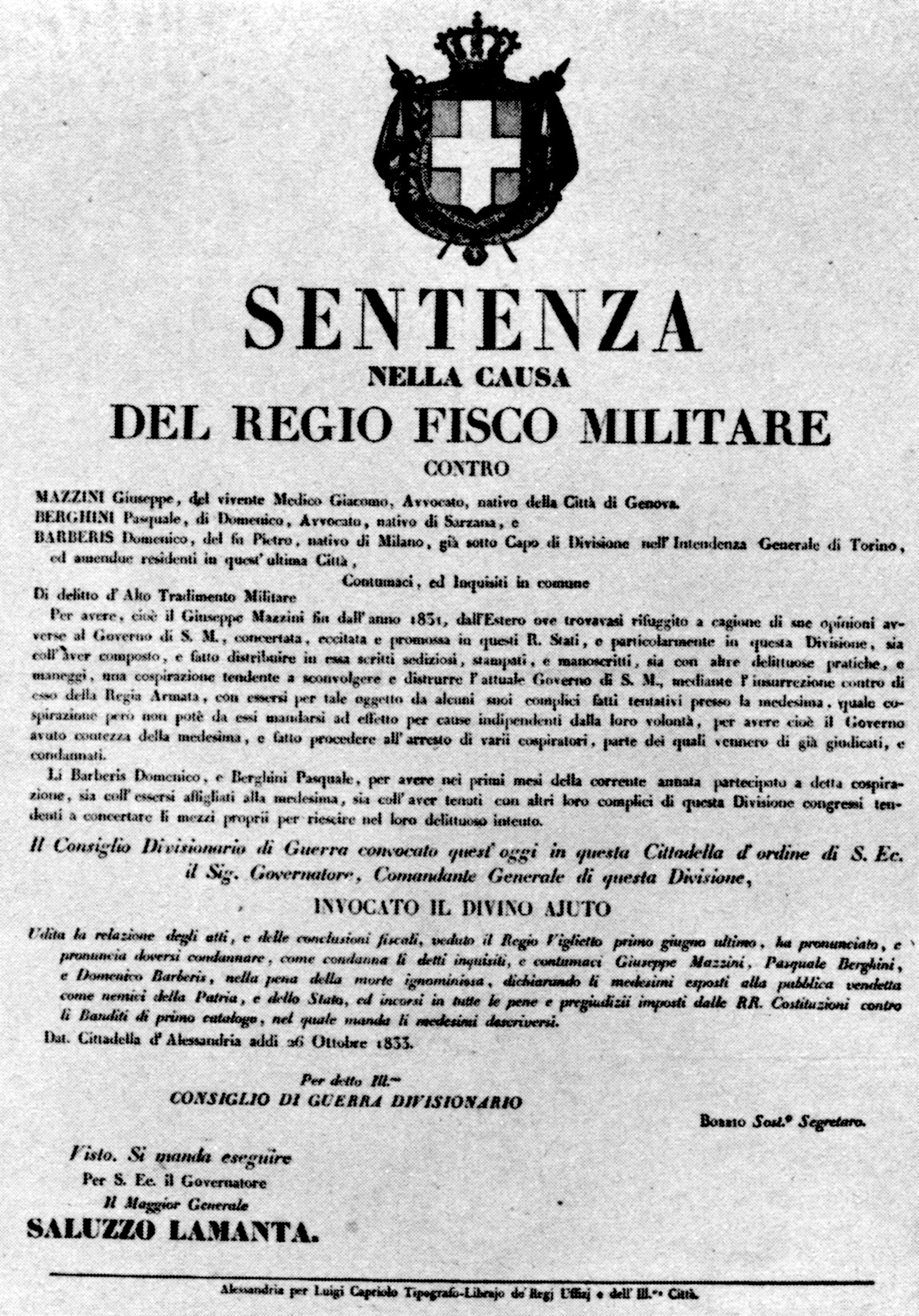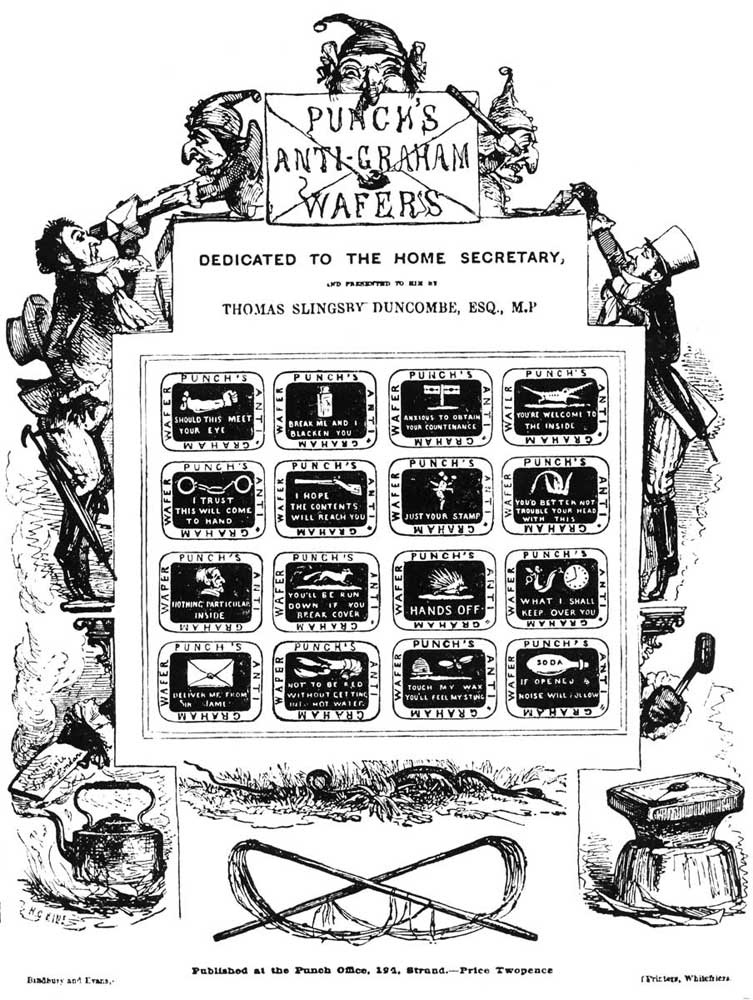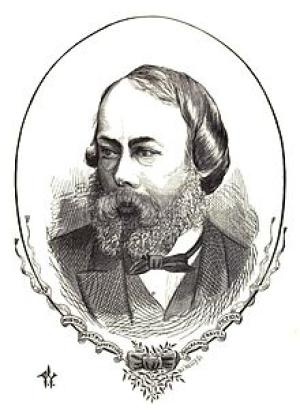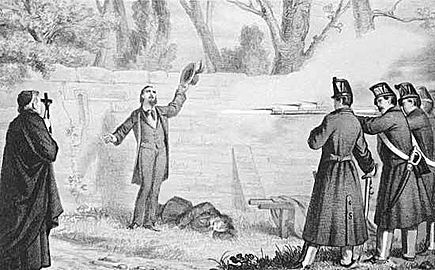Pubblicato da
Massimo Di Bona
GRAINS OF SAND,POPPY SEEDS OR FINE HAIRS
“It is particularly requested that if Sir James Graham should open this, he will not trouble himself to seal it again”
Charles Dickens
The defense of privacy always follows the emergence of technologies for breaching it.Illustration by Nishant Choksi.
https://www.nishantchoksi.com/
https://www.nishantchoksi.com/
Everyone has the right to life, liberty and security of person. (Universal Declaration of Human Rights, Article 3, 1948)
NO
The security of power is based on the insecurity of the citizens.
(Leonardo Sciascia)
The security of power is based on the insecurity of the citizens.
(Leonardo Sciascia)
Yes
True individual freedom cannot exist,
without economic security, and independence.
People who are hungry and without work
are the pasta that dictatorships are made of.
(Franklin Delano Roosevelt)
NO
A watchful and provident fear is
the mother of security.
(Edmund Burke)
A watchful and provident fear is
the mother of security.
(Edmund Burke)
YES
Whoever is ready to renounce his fundamental freedom
for the attainment of a temporary small security,
deserves neither freedom nor security.
(Benjamin Franklin)
NOFor security reasons,
freedom of thought has been restricted.
(Aleksandar Cotric)
YES
Life is a process in which one must constantly choose between security
(for fear and for the need to defend oneself)
and risk (to progress and grow).
and risk (to progress and grow).
Choose to grow at least ten times a day.
(Abraham Maslow)
NOSometimes it is necessary to bend the rules a bit
to guarantee the security of the country.
(From the movie J.Edgar)
_____________________________________________________________________________________
Sir James Robert George Graham,2nd Baronet, was brought back into government by Sir Robert Peel(British prime minister belonging to Conservative Party),as Secretary of State for the Home Department between from September 1841 to July 1846. Resigned with Peel (1846).Sir Robert George Graham
Sir Robert Peel
The first modern crisis of public secrecy was set in motion in the Spring of 1844 when a little-known Italian exile began sending himself letters in which he had placed grains of sand, poppy seeds or fine hairs. The discovery that the additional contents were disappearing in transit confirmed Joseph Mazzini's suspicions that his correspondence was being opened by Sir James Graham, the Home Secretary, at the request of the Austrian ambassador.
Graham's first biographer described as a ‘paroxysm of national anger’ as the extent of clandestine domestic espionage was exposed. A powerful coalition of working-class radicals and Parliamentary Liberals came together to protest at the use of ‘the spy system of foreign states’.‘The proceeding cannot be English,’ thundered The Times, ‘any more than masks, poisons, sword-sticks, secret signs and associations, and other such dark ventures. Public opinion is mighty and jealous, and does not brook to hear of public ends pursued by other than public means. It considers that treason against its public self.’
------------------------------------------------------------------------------------------------------------
GIUSEPPE MAZZINI
"The word Italy is a geographical expression, a qualification that concerns the language, but which does not have the political value that the efforts of revolutionary ideologues tend to give them."
"I had to fight with the greatest of soldiers, Napoleon. I came to agree among them emperors, kings and popes. No one gave me more trouble than an Italian brigand: thin, pale, ragged, but as eloquent as a storm, ardent as an apostle, shrewd as a thief, casual as a comedian, tireless as a lover, who has the name: Giuseppe Mazzini. »
(Klemens von Metternich, Memories)-----------------------------------------------------------------------------------------------------------
Giuseppe Mazzini, born in Genoa in 1805 - died in Pisa 1972, a lover of Italian literature and Europe, was impressed by the "Last letters of Jacopo Ortis" to want to always dress in black, as a sign of mourning for the oppressed country. Having said this, he was arrested for the first time at 25 for not giving way to an Austrian cadet in church. Imprisoned as a result of failed insurrectionary uprisings imprisoned in the prison of Savona, in the Priamar Fortress, sentenced to death in absentia in 1833.He fled first to France in Marseilles, and took refuge in Switzerland in 1834, in the town of Grenchen, where he found protection, which failed for the cantonal vote. Discovered he emigrated to Great Britain where he spent almost the rest of his life from 1937 until 1868, with some brief interruptions in particular in 1849 with the Roman Republic.
Sentence of death sentence of 1833
In 1831 in Marseille he established the "Young Italy" under the motto "Thought and Action", proclaimed the insurrection as a programmatic principle, but he wanted the association to be essentially an educator, since, Mazzini declared, education brought man closer together to God :"Republican and unitary Young Italy: 1. because" all the men of a nation are called by the law of God and Humanity to be free, equals and brothers, and the republican institution was the only one that ensured this future " ; 2. because "without unity there is really no nation, because without unity there is no strength", and Italy, surrounded by united, powerful and jealous nations, needed first of all to be strong.”
Flag of Young Italy with the motto: "union, strength and freedom"
Although he was dressed in an austere way, he also acted as a woman in order to escape from the half-European police forces that were hunting him, taking his degree in law and writing in the newspapers, he never had great financial means. In London he set up a small business selling Italian food, but with little success. Quite another success with the women, he played guitar and, with many important English intellectuals who helped him in his exploits.
The words of two of the future prime ministers of the Kingdom of Italy and protagonists of the Risorgimento are significant:"I found all persuaded that the Young Italy was madness; madness the sects, the conspiracy madness, the revolutionaries made crazy up to that day, without rhyme or reason "»(Massimo d'Azeglio, of the last cases of Romagna)
"On these classes [...] so strongly interested in maintaining the social order, the subversive doctrines of the Young Italy have no hold. Therefore, with the exception of the young people with whom the experience has not yet changed the doctrines absorbed in the exciting atmosphere of the school, it can be said that in Italy there is only a very small number of people seriously willing to practice the exalted principles of a sect embittered by misfortune. "(Camillo Benso Count of Cavour, A.Gacino-Canina, Economists of the Risorgimento, UTET. Turin, 1953)
_____________________________________________________________________________________
Punch; or, The London Charivari was a British weekly magazine of humour and satire:
Keep off-Not to be Grahamed-Nothing particular inside
Many booksellers even began to sell padlock-shaped envelopes with the words "Not to be Grahamed" in plain sight.The minister was for example represented in the cartoons as Paul Pry: a comic, idle, intriguing and malicious type consumed by curiosity. Unable to deal with his own business, he is a nosy man who conveniently interferes by leaving an umbrella wherever he goes to have an excuse to come back and eavesdrop.Paul Pry, who in a very popular comedy by John Poole is the protagonist affected by a morbid curiosity.
Baron Philipp von Neumann
It all began with a letter from the Austrian ambassador in London, Baron Philipp von Neumann, to the aforementioned Sir James Graham, who was Secretary of State for Internal Affairs and therefore responsible for the British espionage system. Graham agreed to cooperate, but did not agree his decisions with the rest of the government. The first result of this collaboration was the discovery of Mazzini's home: he lived without hiding his identity in a rather respectable area: 47, Devonshire Street, Queens Square. At the end of the 1930s, England became the favorite place of exiles in Europe.
On March 1, 1844, Graham took a further initiative: he issued a secret mandate for the interception, opening and copying of letters addressed to Giuseppe Mazzini. The Austrians wanted to defeat the whole band of exiles and to know where the next uprising in Europe would take place.
Sir Thomas_Slingsby_Duncombe
"It was certainly not the first time that a British minister authorized the control and opening of someone's correspondence. The opening of the letters was a rather ordinary instrument of police and government control. In the past, Graham himself had authorized similar measures against cartism militants, a radical political movement that in those years called for social and democratic reforms.
"What made the use of this measure more daring now was that the instigator of the operation was in fact a foreign ambassador, and above all the fact that Mazzini did not constitute a risk for British internal security. Graham's men began to steal the correspondence of the founder of Giovine Italia from mail bags. They took her to an inner room of the post office, opened it, copied the contents and sent it back to Mazzini, so that he wouldn't become suspicious. Graham began to receive the text of the letters to Mazzini on his desk and to send them to the Austrian ambassador.
Things went like this through March and most of April 1844, without any sensational discovery. On 20 April, however, Neumann was able to take the satisfaction of communicating to Metternich, the powerful Austrian chancellor, the first important result of the operation: Emilio Bandiera had written to Mazzini putting himself at the service of Giovine Italia.Just then, however, Mazzini began to suspect something. A friend and disciple noticed it by chance. Mazzini had passed him a letter he had received, but he forgot about it for a few days in his coat pocket. When he found it again, he noticed that the wax stamp had curiously detached itself into two exact parts. In fact, the police carefully engraved the seal and replaced it by melting a small part of wax in the middle of the two parts. Or he would copy the seal directly and proceed to a fusion over the old one.Informed of this, Mazzini began to do tests. Letters were sent with seeds or tiny grains inside the envelopes and he saw that they did not contain them when he arrived at his address. Or he had the seal put on a hair to make sure it wasn't altered. Finally, in front of two witnesses, he sent two letters to his address: one addressed to his name, the other to an acquaintance. The letter addressed to himself arrived several hours later than the other."
"On June 14, Congressman Thomas Duncombe intervened in a harsh parliamentary interpellation in the House of Commons against Minister Graham. Duncombe presented a petition in the name of Mazzini and other activists in which he denounced the practice of opening letters as "repugnant to every principle of the British Constitution, and subversive of public trust, which was so essential in a commercial community". Duncombe's motion asking for an investigation to verify the allegations, Graham said the answer to this question was a secret, was rejected, but at this point the Mazzini affair had already broken out on all the English newspapers: the government resse for 16 votes. Radical deputies accused the government of contempt of public liberty. Polish revolutionary and exile Karol Stolzman, fromPolish Democratic Society, claimed to have also been intercepted. It turned out that the same treatment was reserved for some members of Parliament, and even for diplomatic correspondence.Alongside Mazzini intervened senior intellectuals and politicians such as the poet Robert Browning, Lord John Russell (the grandfather of the philosopher Bertrand and future prime minister), the writers Charles Dickens and Thomas Carlyle."
by Francesco Buscemi
https://www.ilpost.it/2013/...
https://www.ilpost.it/2013/...
“The questions raised this month on the National Security Agency's surveillance have been met, so far, with the same response that Duncombe obtained from Graham in 1844: the program is classified. (This, a secret secret, is known as a double secret.) Fortunately, the old secrets are not secret; old secrets are history. The Mazzini affair, as the historian David Vincent argued in "The culture of secrecy", led to the "first modern attack on official secrecy". It stimulated a public uproar, and in the end the House of Commons appointed a Secrecy Committee "to investigate the state of the law regarding the detention and opening of letters at the general post office, and how it was exercised 'authority for such detention and opening. "In August 1844, the committee published a report of one hundred and fifteen pages on the post office passages. Fascinating to historians, it must have bored Parliament. It includes a history of mail delivery, dating back to the 16th century. (The members of the committee had "shown so much antiquarian research," observed Lord John Russell, who was surprised that he had not returned until the case of Hamlet, Prince of Denmark, who opened the letters that had been entrusted to his office and has had Rosencrantz and Guildenstern put to death instead of himself. "
“The report revealed that Mazzini's post had actually been opened and that there was something called the Secret Department of the post office.”
"The general average of the Warrants issued during the present century does not exceed 8 years", the investigation revealed. "This number would include, on average, the Letters of about 16 people per year." The Secretariat Committee was relieved to report that the Secret Department of the post office had, at times, sent "whole mail bags" to the Ministry of the Interior was false: "No one but separate letters or packages are ever sent" .
The whole episode was closely observed in the United States, where the New-York Tribune condemned the opening of Mazzini's post as "a barbarous violation of honor and decency". After the Secrecy Committee published its report, Mazzini published an essay entitled "Open Letter to the Post Office." Two months after the start of the Mazzini affair, the secret department of the post office was abolished. What replaced it, in the long run, was even more subtle: better kept secrets.”
“The report revealed that Mazzini's post had actually been opened and that there was something called the Secret Department of the post office.”
"The general average of the Warrants issued during the present century does not exceed 8 years", the investigation revealed. "This number would include, on average, the Letters of about 16 people per year." The Secretariat Committee was relieved to report that the Secret Department of the post office had, at times, sent "whole mail bags" to the Ministry of the Interior was false: "No one but separate letters or packages are ever sent" .
The whole episode was closely observed in the United States, where the New-York Tribune condemned the opening of Mazzini's post as "a barbarous violation of honor and decency". After the Secrecy Committee published its report, Mazzini published an essay entitled "Open Letter to the Post Office." Two months after the start of the Mazzini affair, the secret department of the post office was abolished. What replaced it, in the long run, was even more subtle: better kept secrets.”
from Privacy in an age of publicity.
By Jill Lepore June 17, 2013
https://www.newyorker.com/m...
_____________________________________________________________________________________
By Jill Lepore June 17, 2013
https://www.newyorker.com/m...
_____________________________________________________________________________________
The opening of Mazzini's mail, like the revelations that the NSA has monitored telephone, e-mail and Internet use, illustrates the complexity of the relationship between secrecy and privacy. Secrecy is what is known, but not at all. Privacy is what allows us to keep what we know to ourselves. Mazzini considered his correspondence private; the British government kept his reading of his mail secret. The ACLU, which filed a lawsuit against the Obama administration last week, called the NSA's surveillance program a "gross violation" of the "right to privacy". The Obama administration has defended both the program and the fact that its existence has been kept secret.
As regards the historical analysis, the relationship between secrecy and privacy can be stated in an axiom: the defense of privacy follows, and never precedes, the emergence of new technologies for the display of secrets. In other words, the privacy case always comes too late. The horse is out of the barn. The post office has opened your mail. Your photo is on Facebook. Google already knows that, despite your demographic profile, you hate Kale.
The particular technology counts for little; the axiom holds. It is only a characteristic, however, of a centuries-long historical transformation: the secularization of the mystery.
by Jill Lepore
______________________________________________________________________________________
______________________________________________________________________________________
shooting of the Bandiera Brothers
When the news of the death of the Bandiera brothers arrived in London, British public opinion was very shaken and the suspicion that the British government had helped the Austrian one reinforced Mazzini's position and the conviction that the accusations were true.
This fueled English sympathies towards the unity of Italy. And exactly after 20 years, at Mazzini's invitation Garibaldi arrived in London followed by an oceanic crowd.
This fueled English sympathies towards the unity of Italy. And exactly after 20 years, at Mazzini's invitation Garibaldi arrived in London followed by an oceanic crowd.
Giuseppe Garibaldi in London 1864
https://www.newyorker.com/m...
https://en.wikipedia.org/wi...
https://en.wikipedia.org/wi...
https://en.wikipedia.org/wi...
https://en.wikipedia.org/wi...
https://en.wikipedia.org/wi...
https://en.wikipedia.org/wi...
https://www.britannica.com/...
https://www.britannica.com/...
https://en.wikipedia.org/wi...
https://en.wikipedia.org/wi...
http://www.treccani.it/enci...
https://en.wikipedia.org/wi...
https://www.newyorker.com/m...
http://frida.unito.it/wn_me...
https://en.wikipedia.org/wi...
https://www.ipsb.nina.gov.p...
https://en.wikipedia.org/wi...
https://en.wikipedia.org/wi...
https://en.wikipedia.org/wi...
https://en.wikipedia.org/wi...
https://en.wikipedia.org/wi...
https://en.wikipedia.org/wi...
https://en.wikipedia.org/wi...
https://www.britannica.com/...
https://www.britannica.com/...
https://en.wikipedia.org/wi...
https://en.wikipedia.org/wi...
http://www.treccani.it/enci...
https://en.wikipedia.org/wi...
https://www.newyorker.com/m...
http://frida.unito.it/wn_me...
https://en.wikipedia.org/wi...
https://www.ipsb.nina.gov.p...
https://en.wikipedia.org/wi...












Commenti
Posta un commento